Tim Jones's Blog, page 26
May 2, 2013
An Interview With Gareth Renowden

Gareth Renowden is a writer, photographer and truffle grower based in the Waipara Valley, north of Christchurch. In nearly 40 years of working with words he's written for and worked on newspapers and magazines in New Zealand, the US and the UK. His small farm is the only property in NZ to produce three species of truffle: the Périgord black, bianchetto and Burgundy truffles he produces are used by New Zealand's finest chefs and restaurants. He's written books on olives, truffles and global warming, and runs the Hot Topic blog covering climate science and policy from an NZ perspective.
Gareth, what led you to make the move from journalism and nonfiction into fiction?
It's not really a move, more a change of the material I'm working with. Journalists talk about working on stories, after all. In anything more than the most basic news reporting -- any kind of longer form writing -- you have to tell a story. You have to lead the reader through a sequence of events, and you have to do it in a way that makes them want to reach the end. There has to be some kind of narrative for them to follow. The big difference, for me, is that when you write fiction you have a much bigger palette to play with. That's exciting and difficult -- and more than a little addictive.
The Aviator was born out of my writing about climate change, and my experience in what passes for debate about the need for action. I wanted to paint a picture of the sort of world we're heading towards, and at the same time examine some of the science and politics that's taking us there. We're on the cusp of remarkable developments in technology and biology, but there's a race going on between mankind's attempts to stuff up the planet and our ability to develop and apply technologies that will fix the problem. I could write lengthy and learned dissertations that no one would read, or I could write a sci-fi book that would entertain and inform, and that no one would read. I chose science fiction because it was more fun, but remain to be proved wrong about its readership... ;-)
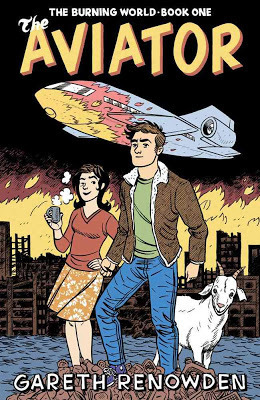
Did you have any role models in terms of writing a novel built around the effects of climate change?
As a child of the 50s and 60s in Britain, I grew up reading Dan Dare in The Eagle, and watching scratchy old black and white Doctors doing battle with daleks on cardboard sets. I read Biggles and WE Johns' lesser known sci-fi series (http://www.wejohns.com/SciFi/), graduated to Jules Verne, HG Wells and John Wyndham, and then on to Bradbury, and the great British sci-writers of the 60s -- Aldiss, Moorcock (especially the Jerry Cornelius books), Ballard and so on. Wyndham was certainly influential. His books are sci-fi thrillers -- a sort of prototype for Michael Crichton when he was good -- very much of their time. Aldiss called them "cosy catastrophes", which is very apt. I re-read The Kraken Wakes recently, prompted by this interview (you were wondering why it took so long to reply), and reminded myself why his stories were so memorable.
The Kraken Wakes is more or less a retelling of The War of the Worlds, with aliens arriving from some unspecified planet and setting up camp in the ocean deeps. Havoc ensues, with the last third of the book devoted to the collapse of civilisation as the aliens flood the planet by melting the ice at both poles. To a modern reader, the writing seems a bit stilted, the plot forced by the narrator's need to be at the heart of the action (he's a radio journalist, of course), but it's a wonderful imagining of catastrophic events set in a world emerging from the Second World War and teetering towards the Cold War, where ocean liners plied their trade, the airline industry was just beginning to ramp up, Britain still had delusions of grandeur, and television was something new and hi-tech and used only to try and spot the aliens in the ocean. There was humour in there too -- much play made of the Russian reaction to events, and the vagaries of the British media of the time. Wonderful, in other words.
I first read TKW in 1968, probably around the time that I read Ballard's The Drowned World. The Beatles' White Album would have been the soundtrack. Both books could be described as early climate fiction, but at the time everybody expected an apocalypse to be triggered by all-out nuclear war. The threat of nuclear annihilation was a potent and realistic fear that informed all sorts of creative work in the 50s and 60s - it was the zeitgeist. At the time, nobody would have thought that burning fossil fuels might be the agent of dramatic change or a threat to civilisation. For that you needed aliens or bombs.
In the novel, New Zealand and much of the US are still relatively liveable, despite the drastic effects climate change is having on other parts of the world. Do you expect NZ and the US to be less affected, at least initially, than other countries?
New Zealand, yes, at least at first. But the USA will be vulnerable to rapid change because the whole of the northern hemisphere is going to see changes we can only guess at because of the loss of the Arctic sea ice cover (which will happen before too many more years pass).
Rapid climate change doesn't necessarily mean devastation. It more likely begins with dislocation and attempts at adaptation, which in some places will work, and in others turn out to be impossible. The one thing you can't escape is the rising ocean, so anywhere where there are lots of people living on a big river delta there are going to be problems. There will be forced mass migrations.
With a partial exception in the US scenes, formal Government doesn't play much of a part in the book - in particular, the New Zealand Government seems to have disappeared. Is that partly so you can use the book as a test-bed to see what different social structures might form in such a world, or is it just that you think governments won't survive the effects of climate change?
Governments are mostly shadowy things in The Aviator because that's what they are to most people in everyday life. Lemmy and Kate are trying to lead lives that to them are ordinary, even if they are of necessity extraordinary to us. I suppose I would argue that governments all over The Burning World are being distracted by the need to try and sustain themselves (and perhaps their electorates, or at least supporters) in the face of the immense geopolitical changes driven by rapid climate change. There is still government in NZ -- probably trying to privatise the remaining biofuel plants.
A friend who read and enjoyed The Aviator commented to me that her favourite part of the book was the little section devoted to what became of the climate deniers in this post-climate-change environment. Would I be right in thinking you took particular delight in writing this section?
It's a fair cop. Anyone who follows the online tussling between climate deniers and reality will find much in that section that's familiar. It's the most overtly satirical part of the book, born out of some of the fun I've had with my comic tales of Christopher, Viscount Monckton of Brenchley, as seen through the eyes of his manservant, Old Scrotum, the wrinkled retainer (http://hot-topic.co.nz/monckton-and-the-big-waka/). I enjoy writing to make people laugh, and it's an important part of what I tried to do in The Aviator. It's a gloomy world, The Burning World, and a certain amount of black humour helps to get you through...
I hope it's not doing you a disservice to say that The Aviator reminded me at times of Kim Stanley Robinson's work - though, curiously, not so much his climate change trilogy as his Mars books. Although KSR is an atypical American science fiction author in many respects, he does share that typical American enthusiasm for large scale techno-fixes. Do you think geoengineering, which plays a part in Kim Stanley Robinson's climate change trilogy, has a part to play in mitigating the effects of climate change - and if so, how does the world prepare for that option?
I consider it an honour to be compared to KSR, for which many thanks. I have read his climate trilogy, and while enjoying them didn't think they worked as effectively as Galileo's Dream or 2312. In the latter, KSR's treatment of a climate changed earth is very interesting -- New York as a new Venice, asteroids hollowed out to create refuges for terran biomes: fascinating stuff.
In The Burning World I have geoengineering being tried and failing, but it plays no part in the storyline. That's something for a later book perhaps. In the real world I think it's almost inevitable that attempts will be made to geoengineer the planet to reduce warming. Two reasons for inevitability: at some point, governments are going to panic when the rapidity of climate change becomes obvious. There will be demands to do something, and - because it will be too late to stop change by reducing emissions - geoengineering will suddenly become attractive. Second: techno fixes are already being suggested as the only feasible response to warming. It's argued that it's too expensive and disruptive to stop burning fossil fuels, so let technology solve the problem. Some methods are in the realm of hard SF - space mirrors or sun shades, for instance - while the more likely (or at least affordable) approach would be to add sulphate aerosols high in the atmosphere. That could be done quite quickly and crudely by adding sulphur to jet fuel.
The problem, of course, is that geoengineering with or without big emissions cuts is making a real Faustian bet with the future of the planet. Suppose we do manage to cap warming by spraying aerosols in the atmosphere, we are then committed to doing it for ever -- unless we are also planning to remove carbon from the atmosphere. If for any reason - like war, or cost cutting - we stop spraying the gunk, then we unleash a burst of rapid warming that would be truly catastrophic. There are also other major difficulties - like the ocean acidifying - that won't go away without carbon removal.
Carbon removal processes are therefore more or less inevitable as well. The world will have to go beyond zero emissions to re-burying some - preferably all - of the fossil carbon dug up over the last 100 years. In The Burning World, it's been tried, but the big methane releases from the Arctic have rendered them redundant.
I understand The Aviator is intended to be the first volume in a trilogy. Can you give us any hints of what's to come in the next volume, and when it might appear - or are you operating a strictly "no spoilers" policy?
I'm sketching out the second and third books at the moment, and plan to get down to writing book two in the second half of this year (there's a revised and updated edition of my 2005 book on truffles to finish first). Given that I'm not yet entirely sure what to put in and what to leave out, and that things will inevitably change in the writing, I'm not going to give too much away. It would be safe to assume that Lemmy's boss, whose disappearance triggers Lemmy's travels, will finally turn up. And Lemmy and Kate will continue to tour the world, visiting some of the regions not featured in The Aviator. There will be mammoths, and a singular surprise at the end.
Book availability details
The Aviator is available as an ebook and paperback, from most major retailers worldwide. More information from the Burning World web site (http://burningworldbooks.wordpress.com/), and Gareth's web site (http://limestonehills.co.nz/books/the-aviator/). From most places in the world, the cheapest way to get the paperback is from the Book Depository in the UK: free delivery and only NZ$18.58. (http://www.bookdepository.co.uk/Aviator-Gareth-Renowden/9780987669735/?a_aid=HotTopic) To cut out the middlemen, you can buy the ebook for $6.99 direct from the author... (http://limestonehills.co.nz/books/the-aviator/)
Amazon: ebook: http://amzn.to/Uc6mcx
Paperback: http://amzn.to/PzroAZ
Barnes & Noble: http://http//www.barnesandnoble.com/w/the-aviator-gareth-renowden/1113049315?ean=2940044850514
Kobo: http://www.kobobooks.com/ebook/The-Aviator/book-MxmfAKshvkmTZXNx0bGgSQ/page1.html?s=gFWxbJPri0OWuV-AyuL_ew&r=1
Apple NZ (also available in all Apple iBooks stores): http://itunes.apple.com/nz/book/the-aviator/id557437145
You can buy books by Tim Jones online! Voyagers: SF Poetry from NZ from Amazon.Transported (short story collection) from Fishpond or New Zealand Books Abroad.

Published on May 02, 2013 13:21
April 23, 2013
3rd Birthday Communal ‘Jazz’ Tuesday Poem: Scratch
The third anniversary Tuesday Poem "Scratch" is now online; I had the honour (and challenge) of supplying the final stanza! Tap your feet to the Tuesday Poets' polyrhythms here:
http://tuesdaypoem.blogspot.co.nz/2013/04/3rd-birthday-communal-jazz-poem.htmlYou can buy books by Tim Jones online! Voyagers: SF Poetry from NZ from Amazon.Transported (short story collection) from Fishpond or New Zealand Books Abroad.
http://tuesdaypoem.blogspot.co.nz/2013/04/3rd-birthday-communal-jazz-poem.htmlYou can buy books by Tim Jones online! Voyagers: SF Poetry from NZ from Amazon.Transported (short story collection) from Fishpond or New Zealand Books Abroad.

Published on April 23, 2013 02:12
April 18, 2013
I Belong To The Regeneration
I'm happy to report that my short story "Rescuing the Airmen" has been accepted for inclusion in Regeneration: New Zealand Speculative Fiction II, which is being published by Random Static and launched at Au Contraire 2013, this year's NZ National Science Fiction Convention
The Table of Contents is below. There are a lot of fine writers in there - quite apart from being pleased that I have a story in the book, I'm looking forwards to reading it!
You can check out Random Static's other books and products as well, including two other anthologies that I have stories in, A Foreign Country and Tales for Canterbury.
Table of Contents for Regeneration
Random Static Ltd is pleased to announce the table of contents for
Regeneration: New Zealand Speculative Fiction II. Once again, we have a
fantastic range of stories by talented authors, and we look forward to
sharing them with you.
Last Harvest – Matt Cowens
Rescuing the Airmen – Tim Jones
Hunting Ythan – Mary Brock Jones
The Mistress of Fishes – O.J. Cade
Max's Black Box – Grace Bridges
In a World Full of Birds – I.K. Paterson-Harkness
Insomnia – Kylie Thorne
The Spectre Spectrum – Debbie Cowens
Carving Out a Life – J.C. Hart
Kiwi or Queenie – Jennifer Compton
Emptying Roesler – Simon Petrie
Tapping the Skin of the World – Anna Smith
Doorway – Rebecca Harris
Monocarpic Colony Blues – Elizabeth Gatens
Harvesting the Gyre – Jonathan James Todd
The Origami Tree – A.J. Fitzwater
Evacuation – Fran Atkinson
Splintering – Anna Caro
Mother's Milk – Dan Rabarts
Cave Fever – Lee Murray
Coat – Grant Stone
Ren – Toni Wi
Regeneration is due to be launched on the 12th of July at Au Contraire 2013 - watch this space for more details and pre-order information.
You can buy books by Tim Jones online! Voyagers: SF Poetry from NZ from Amazon.Transported (short story collection) from Fishpond or New Zealand Books Abroad.

Published on April 18, 2013 03:47
April 8, 2013
Tuesday Poem: Revenant
When they pulled me from the water
I had scarcely finished breathing
My fingernails dripped blood and sand
My slack-jawed face had turned the blue of ocean
They pushed and pulled my heart to action
I stumbled from the cooling sand
and ate the proferred wafer
All along my neck and arms
the hair stood up in terror
I knew you would see nothing
My eyes still blink
my lips still speak my
feet still strike the pavement
We laugh and smile
and in your speech I
hear the kelp pods cracking
But in the moonless dark of night
avoid the outer windows
I walk beneath the summer rain
and see the green mouth closing
In my wake the crusted salt
dissolves upon the grass blades
Credit note: "Revenant" was published in my first poetry collection, Boat People (2002).
Tim says: I tried this idea - a fantasy/horror transfiguration of the time I nearly drowned in 1989 - as both a short story and a poem. I never got anywhere much with the story, but this poem made it into my first collection. If I was writing it now, there are some things I would do differently, but I like the lurching rhythm that gets going for a while in the third stanza.
The Tuesday Poem: Is particularly worth checking out at the moment, as the jazz poem the Tuesday Poets are collectively writing for the third anniversary of the Tuesday poem is growing vaster than empires, and a good deal quicker.
You can buy books by Tim Jones online! Voyagers: SF Poetry from NZ from Amazon.Transported (short story collection) from Fishpond or New Zealand Books Abroad.

Published on April 08, 2013 03:07
April 1, 2013
My First "Book Watch" Column For The New Zealand Herald
A couple of months ago, Nicky Pellegrino, who edits the New Zealand Herald's books page, contacted me after seeing my two-part summary of my 2012 reading (Part 1 | Part 2) to ask whether I would be interested in writing an occasional "Book Watch" column for the Herald on Sunday: short comments on 3 or 4 books I've read recently, with no restrictions as to the genres covered.
That seemed to fit pretty well with the fact that I keep track of my reading on LibraryThing, so I said "yes" - and here is my first column. Only the first three of these pocket reviews were published in the Herald, but as I really enjoyed Wolves Eat Dogs I have posted that mini-review here too.
Book Watch Column 24 March 2013
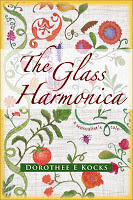
The Glass Harmonica, by Dorothee Kocks, published by Rosa Mira Books
(2011) - see http://rosamirabooks.com/books/index.html#tgh (US $7.00 ebook)
This novel by US author Dorothee Kocks was the first book
published by Dunedin-based ebook publisher Rosa Mira Books. It is a
beautifully-written story of Revolutionary France, post-revolutionary America,
and the invention of pornography as a commercial genre. The central character
Chjara, a Corsican virtuoso of the glass harmonica, is vivid and engaging. I wasn’t always convinced by the
actions and motivations of her American lover Henry, but that’s a minor flaw in
this fine novel which was a pleasure to read on my newly-acquired Kindle.
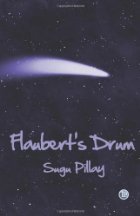
Flaubert's Drum, by Sugu Pillay, published by IP (2012) - see http://ipoz.biz/Titles/FD.htm (NZ $15 ebook, $28
paperback)
Already an accomplished playwright and short story writer, Sugu Pillay
is now showing her strength as a poet. Born in Malaysia, she now lives in the
South Island. Flaubert’s Drum, which is her first poetry collection, is a very
interesting and wide-ranging set of poems that moves between Asia and New
Zealand, between epic and earthquake, between the turtles of Chendor Beach and
the schist of Lindis Pass. I especially enjoyed the final section of the book,
which does a lovely job of tying the book’s strands together. Technically
accomplished and often moving poetry.

The Aviator, by Gareth Renowden, published by Limestone Hills
Publishing (2012), book 1 of The Burning World series - see http://burningworldbooks.wordpress.com/ (NZ $6.99 ebook, US
$15 paperback)
Gareth Renowden is best known as a journalist and science blogger – in
particular, for the Hot Topic blog on climate change. With The Aviator, Book 1 of a planned
series, he turns to science fiction. In a world in which runaway climate change
proceeds unchecked, airship pilot Lemmy (no relation to Motörhead) and his AI
and human companions tour the world from their base in the Marlborough Sounds,
visiting the communities springing up in parts of the world made newly livable
and experiencing the terrible consequences of runaway climate change throughout
most of the world. If you like the great near-future science fiction novels of
Kim Stanley Robinson, I think you will enjoy The Aviator.
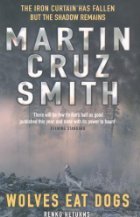
Wolves Eat Dogs, by Martin Cruz Smith, published by Pan (2005),
available from Amazon.com - see http://www.amazon.com/Wolves-Dogs-Arkady-Renko-Novels/dp/0671775952 (from US $10.88
paperback)
Martin Cruz Smith made his name with his
first novel featuring melancholy but determined Russian detective Arkady Renko,
Gorky Park. This is the fifth Renko
book, and it's outstandingly good. Renko is the classic good cop in a bad
place: dogged, incorruptible and determined on uncovering the truth whatever
the cost to himself. In this book, the bad place is the Zone of Exclusion
surrounding the Chernobyl nuclear plant. Smith does a great job of putting
Renko in the path of the teeming wildlife and the secretive humans that live in
the Zone. Highly recommended even if thrillers aren’t normally your thing.
You can buy books by Tim Jones online! Voyagers: SF Poetry from NZ from Amazon.Transported (short story collection) from Fishpond or New Zealand Books Abroad.

Published on April 01, 2013 03:17
March 25, 2013
Tuesday Poem: Ford Madox Brown, The Last Of England
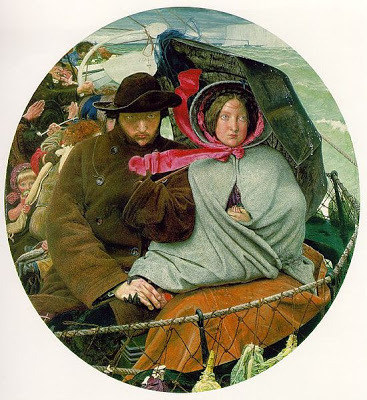
“THE LAST of England! O’er the sea, my dear,
Our homes to seek amid Australian fields,
Us, not our million-acred island yields
The space to dwell in. Thrust out! Forced to hear
Low ribaldry from sots, and share rough cheer
With rudely-nurtured men. The hope youth builds
Of fair renown, bartered for that which shields
Only the back, and half-formed lands that rear
The dust-storm blistering up the grasses wild.
There learning skills not, nor the poet’s dream,
Nor aught so loved as children shall we see.”
She grips his listless hand and clasps her child,
Through rainbow tears she sees a sunnier gleam,
She cannot see a void, where he will be.
Credit note: The name of this poem is actually "For the picture, 'The Last of England'". Ford Madox Brown wrote it in 1855 to accompany his famous painting. It exists in a couple of versions; this version hangs in the Birmingham (UK) Museum and Art Gallery.
Tim says: Ford Madox Brown began work on this painting in 1852, when emigration from the UK was at its height - according to Wikipedia, over 350,000 people emigrated that year, from a country whose population is much smaller than it is now.
I have this painting as a black and white illustration in a book, and had always imagined that the couple in the foreground (modelled by Ford Madox Ford and his wife Emma; their children also appear in the picture) were staring back at England. In fact, the white cliffs of Dover are in the top right of the picture, and the couple are looking resolutely away. When my family and I sailed out of the English channel in 1961 on our way to New Zealand with a boatload of assisted immigrants, I imagine the emotions felt by the adults on board may have been somewhat similar.
The Tuesday Poem: Moves between cultures.
You can buy books by Tim Jones online! Voyagers: SF Poetry from NZ from Amazon.Transported (short story collection) from Fishpond or New Zealand Books Abroad.

Published on March 25, 2013 13:53
March 19, 2013
Words On The Wind: Wellington Central Library, 6pm Wednesday 20 March
I'm looking forwards to taking part in this reading at Wellington Central Library tonight:
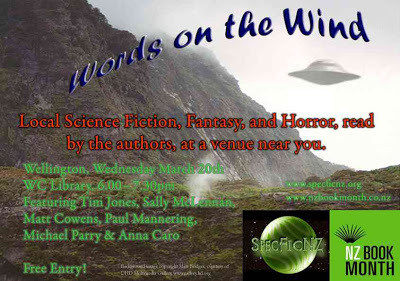
And I also enjoyed taking part in this interview with Sally Dunn for the Nelson Mail: Beyond Infinity: Writing Science Fiction.You can buy books by Tim Jones online! Voyagers: SF Poetry from NZ from Amazon.Transported (short story collection) from Fishpond or New Zealand Books Abroad.

Published on March 19, 2013 14:13
March 11, 2013
Tuesday Poem: Media Advice To The Disgraced CEO
Don't try to sell your story. That would only remind the public
of the millions in bonuses, the failed investments, the workers
turned out on their ear. Don't try to sell your story,
but make sure you have a story to tell.
It's hard to appear contrite - we know. Think of yourself
as an actor playing a part. Mention a disabled relative you've
(quietly, anonymously) been helping out. A cause
you're passionate about: animal rescue, flower shows.
That first interview is crucial. Show them
you're not a monster but a man. A monster doesn't care - a man
makes mistakes, has made mistakes. You admit mistakes were made.
You're only human and you got things wrong.
And as for your latest bonus: you offered to return it,
but the company said no. So what you're going to do is,
you're donating it instead. (Animal rescue, flower shows. A hospital?)
But for this interview, you wouldn't have told a soul.
Remember contrition? Now you have to show it. The interview
is hard for you, and by the end you're dabbing at your eyes.
The public will swallow any grade of bullshit
that is packaged with a redemptive tear.
Credit note: This is a new and previously unpublished poem.
Tim says: You might think that this poem is inspired by recent events, but I couldn't possibly comment.
The Tuesday Poem: Is ready to rock.You can buy books by Tim Jones online! Voyagers: SF Poetry from NZ from Amazon.Transported (short story collection) from Fishpond or New Zealand Books Abroad.

Published on March 11, 2013 04:38
March 4, 2013
Tuesday Poem: Jump In The Fire
Toss it all in. The smoke
thick, greasy, the cinders
cuffed this way and that
by a turbulent breeze.
Hide your eyes. Retreat
until the wind backs off.
Seize handfuls, volumes. Let fire ants
devour the close-furled leaves.
There's something — you feel it —
of the night, of the lupine
act, unclawed, unfurred,
of living through another day.
Something of triumph. You dart
back, and then back to the flame.
Credit note: "Jump In The Fire" was first published in my third poetry collection, Men Briefly Explained.
Tim says: I guess this poem has its origins in the garden waste fires Dad used to build when I was young, fires with a flammable core surrounded by turf that were designed to burn at a low heat for a long time so that we could load on more grass, branches etc as we worked on our large and unruly garden - this was when we lived in Otatara, south of Invercargill, in the late 1960s. Somewhere along the way, a sport of book-burning seems to have attached itself to the concept.
The Tuesday Poem: Is going to wait till the midnight hour.
You can buy books by Tim Jones online! Voyagers: SF Poetry from NZ from Amazon.Transported (short story collection) from Fishpond or New Zealand Books Abroad.

Published on March 04, 2013 02:27
February 25, 2013
The Stars Like Sand: Australian Speculative Poetry - Call for Submissions
They're heeeere! Cross-posted from my co-editor's blog, here are the full submission guidelines for forthcoming anthology The Stars Like Sand: Australian Speculative Poetry. Australians, and expatriate Australians, are welcome to submit up to three poems for the anthology. The closing date for submissions is 4 June 2013. Make sure to read the full guidelines before you submit, and have fun out there!
THE ANTHOLOGY
The Stars Like Sand is a planned anthology of Australian speculative poetry. Speculative poetry is poetry in the science fiction, fantasy, horror and related genres. (Please see below for a fuller definition.) It is intended that the anthology will include both new and previously-published poetry, and include a historical survey of the field. The anthology is intended for publication in 2014.
The anthology will be published by IP (Interactive Publications Pty Ltd) of Brisbane, a leading Australian poetry publisher. IP previously published Voyagers: Science Fiction Poetry from New Zealand in 2009 (see http://www.ipoz.biz/Titles/Voy.htm). Further information about IP is below.
The editors are New Zealand poet Tim Jones, who co-edited Voyagers, and Australian poet P. S. Cottier. Please see the editor bios below.
SUBMISSION GUIDELINES
Please note: Submissions do that not follow the guidelines below are unlikely be successful. In particular, attachments will not be read.
1) Submissions are now open. Please submit your poem(s) by midnight on 4 June 2013. Any submissions received after the editors check their email the following morning will not be considered.
Submission format
2) Send no more than three (3) poems in an email message to starslikesand@gmail.com with the subject line "Submission to The Stars Like Sand".
If you submit more than three poems, whether in one message or in separate messages, we will read only the first three you submit. You are welcome to send fewer than three poems.
3) Include your poem(s) in the body of your email message. Do not send attachments. Attachments will be not be read.
If your poem has special formatting requirements which cannot be reproduced in the body of an email, please send it anyway within the body of your email, but include a note about the formatting requirements. If necessary, we will get back to you to request a copy in the correct format.
4) Due to space limitations, we prefer to be sent poems of 50 lines or less. While we will still read longer submissions, they will have to be exceptional to be included. There is no lower limit on lines, so you are welcome to send haiku and other short forms, provided you send no more than three poems in total.
5) You are welcome to submit both unpublished and previously-published poems:
a) Unpublished poems: Unpublished poems selected for inclusion will be eligible for the Rhysling Awards: see http://www.sfpoetry.com/rhysling.html
b) Previously-published poems: Please supply full details of previous publication, including online, magazine and book publication. If permission is required from a publisher for your poem to be reprinted, we will ask you for the publisher's contact details, and for your help with securing permission to reprint the poem in "The Stars Like Sand" should your poem be selected for inclusion.
6) If you are unsure what speculative poetry is, please see the notes below. If you are still not sure whether your poem fits, please send it anyway - we would rather read some poems that don't fit than miss out on good but "borderline" poems.
7) After your poem(s), please include a biography of no more than 100 words in the body of your email message. Your biography may be edited for reasons of space.
Responding to submissions
8) We will respond to all submissions as quickly as possible. However, the time taken to respond depends on the volume of submissions received. Please be aware that, due to size limitations on the anthology, many submitted poems of merit will, unfortunately, have to be rejected.
9) Previous experience suggests that we are unlikely to be able to include all the previously-published poems we initially select for inclusion, due to difficulties obtaining reprint permissions. Should this occur, we may return to some poems that we were unable to include in our initial selection and ask the poets whether we can now include these poems in the anthology. We will do this only as and when necessary, so please do not resubmit poems which were initially rejected, or submit new poems, unless we ask you to.
Payment
10) All poets included, or their estates in the case of deceased poets, will receive a free copy of the anthology. There will no monetary payment for included poems.
Who can submit?
11) Residents of Australia, and Australians not currently resident in Australia, are eligible to submit. If you are unsure whether you are eligible to submit, please include a note in your email submission letting us know your situation.
WHAT IS SPECULATIVE POETRY?
Speculative poetry is poetry that falls within the genres of science fiction, fantasy, and horror, plus some related genres such as magic realism, metafiction, and fabulation. It is not easy to give precise definitions, partly because many of these genres are framed in term of fiction rather than poetry.
A good starting point is ""About Science Fiction Poetry" by Suzette Haden Elgin, the founder of the Science Fiction Poetry Association, which you can read here: http://www.sfwa.org/members/elgin/SFPoetry.html
Despite its title, this article is applicable to all forms of speculative poetry.
ABOUT THE EDITORS
Tim Jones
Tim Jones is a New Zealand poet and author of both literary fiction and science fiction who was awarded the New Zealand Society of Authors Janet Frame Memorial Award for Literature in 2010.
Among his recent books are fantasy novel Anarya’s Secret (RedBrick, 2007), short story collectionTransported (Vintage, 2008), and poetry anthology Voyagers: Science Fiction Poetry from New Zealand(Interactive Press, 2009), co-edited with Mark Pirie. Voyagers won the “Best Collected Work” category in the 2010 Sir Julius Vogel Awards. Tim's third poetry collection, Men Briefly Explained, was published by Interactive Press in late 2011.
Tim's poem "The Translator" appeared in Best New Zealand Poems 2004, and his short fiction has appeared in, among many other venues, Best New Zealand Fiction 4 (2007), and The Penguin Book of Contemporary New Zealand Short Stories (2009). His short story “The New Neighbours” was included inThe Apex Book of World SF, Volume 2 (2012).
In 2011, Tim edited a special issue of the Science Fiction Poetry Association's online journal Eye to the Telescope, devoted to speculative poetry by Australian and New Zealand poets – see http://eyetothetelescope.com/
P. S. Cottier
P.S. Cottier's third poetry collection is the suite of poems "Selection Criteria for Death", published inTriptych Poets Issue Three, Blemish Books in 2012. She has shared the David Campbell Award, given for the best unpublished poem by an ACT region writer. Her prose poem "Pod, cast", originally awarded first place in a US science fiction competition in 2008, was included in The Indigo Book of Australian Prose Poems (2011). Penelope has had many fantasy and science fiction poems published in non-genre journals and newspapers, such as The Canberra Times and Eureka Street.
Penelope is also widely published in speculative journals in Australia and elsewhere, such as Star*Line(US) and Chiaroscuro: Treatments of Light and Shade in words (Canada). Her poem "Fingernails" was recently nominated for the Rhysling Awards, and her magic realist poem "Eight things you may not know about Vladimir Putin's dog" was included in the inaugural Australian Poetry members' anthology.
She wrote her PhD in literature at the Australian National University.
ABOUT IP
Interactive Publications Pty Ltd has been in business since 1994
and has been growing steadily since then. IP currently publishes 35+ titles
per year, and is the second largest publisher of literary titles in
Queensland.
Interactive Press is one of four imprints of IP. Interactive
Press is one of the leading poetry imprints in Australia, publishing up
to eight titles each year. Interactive Press titles are generally
released via conventional print,
as well as in print on demand (POD) and various eBook formats for
outlets such as Amazon, Apple, Google, Kobo, Overdrive, eBooks Corp and
Wheelers, making them accessible to audiences world-wide.
IP's publisher is Dr David Reiter, himself a prize-winning poet and author.
You can buy books by Tim Jones online! Voyagers: SF Poetry from NZ from Amazon.Transported (short story collection) from Fishpond or New Zealand Books Abroad.

Published on February 25, 2013 23:37



